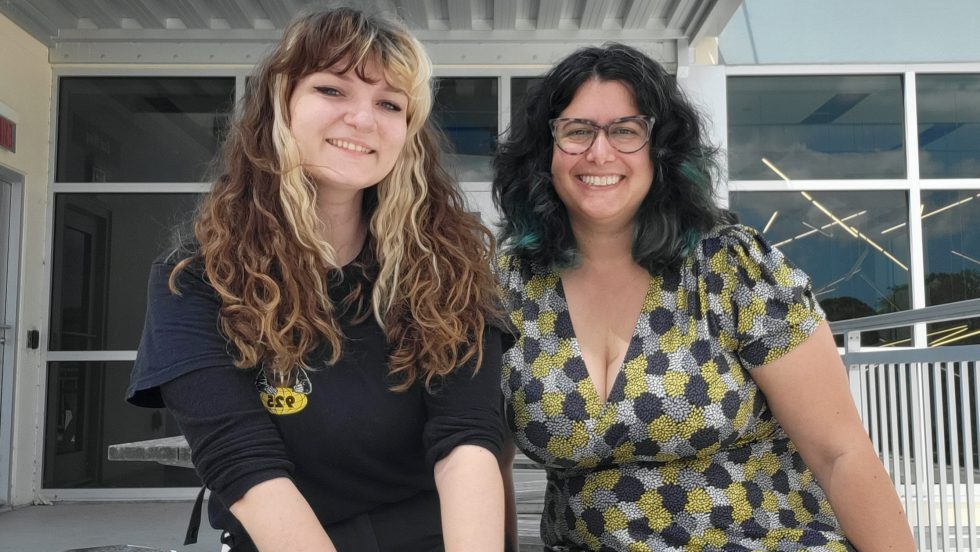Thank You, Dr. L. And Thank You, New College.

Near accepting defeat, I approached the last booth where a woman told me about a small liberal arts college in Sarasota. She talked about narrative evaluations, the contract system, and that she believed the historic College Hall was haunted. I quickly checked with my school’s guidance counselor to find out if New College was a real and accredited college. And I thought it was too good to be true.
My lack of direction would probably have seeped into my semesters at New College if not for another seemingly too-good-to-be true trait of the College: the adviser system.
After I expressed interest in neuroscience my first semester, Associate Professor of Biology Elizabeth Leininger, Ph.D. became my adviser. I call her Dr. L. I am now a thesis student, focusing on biopsychology and neuroscience, and Dr. L is also my thesis adviser.
With Dr. L’s guidance, neuroscience—a topic of which I was initially terrified—quickly became my safety net. The obvious course of action while choosing classes every semester was to continue taking courses with my already-established, brain-oriented adviser.
Several semesters in, Dr. L had to inform me that I had taken every lecture she offered. I had already been her teaching assistant, worked with her as a summer research assistant, and even developed a tutorial with her so I could continue to study interesting animal nervous systems. While my mentorship with Dr. L was fantastic, I needed to form some more relationships on campus.
Despite having one academic adviser for the majority of my time at New College, I’ve received a wide variety of help from instructors, librarians, and staff from on-campus resources like the Writing Resource Center and the Center for Career Engagement and Opportunity.
Recently, while discussing the necessity of networks of support, Dr. L pointed out that I needed to know at least three professors to sign off on a Prospective Area of Concentration Form. Forming relationships with your professors is a necessity!
When talking to New College alumni and thesis students, I have noticed the common thread that, often, they wish they had spent more time talking to their professors. Office hours are a fantastic time to do that. Your very knowledgeable professor is often sitting alone during office hours, and they would likely prefer to share information on their research or answer your questions (rather than sending emails or grading papers).
Dr. L has always been wonderfully accessible to me and other New College students. She is the director of the SET SAIL First-Year Seminar program, which was developed to help new students adapt to and thrive in the New College environment. A key element of SET SAIL is to emphasize the importance of making connections and forming webs of support.
“I see my role as a faculty mentor as part of a student’s larger constellation, network, or team of relationships, and as a facilitator of helping students to build these,” Dr. L said. “I love to help students navigate the academic program and academia in general—when it comes to gaining research skills, opportunities in the field of neuroscience, and teaching (in the case of TAs, etc.), because these are areas of my own strengths and expertise.”
The various aspects of a student’s life at New College—the intellectual, emotional, social, spiritual and practical components—deserve a team-based approach, Dr. L said.
“This is why I love introducing my students to my talented colleagues or campus groups who can be part of their mentorship team, as we identify places where it would be useful to grow the relationship network,” Dr. L said.
These connections could be: a student success coach, a career or financial literacy coach, the therapists at the Counseling and Wellness Center, a librarian, a professor who shares an academic interest with the student, or a student club or organization.
As I get ready to graduate next semester, I feel well-prepared for whatever challenges are ahead of me. Dr. L and the amazingly supportive network at New College gave me that, and I am so grateful.
For more information about the neuroscience area of concentration at New College, click here.
For more information on the biopsychology area of concentration at New College, click here.
Alexis Mingos is an intern in the Office of Communications & Marketing.
